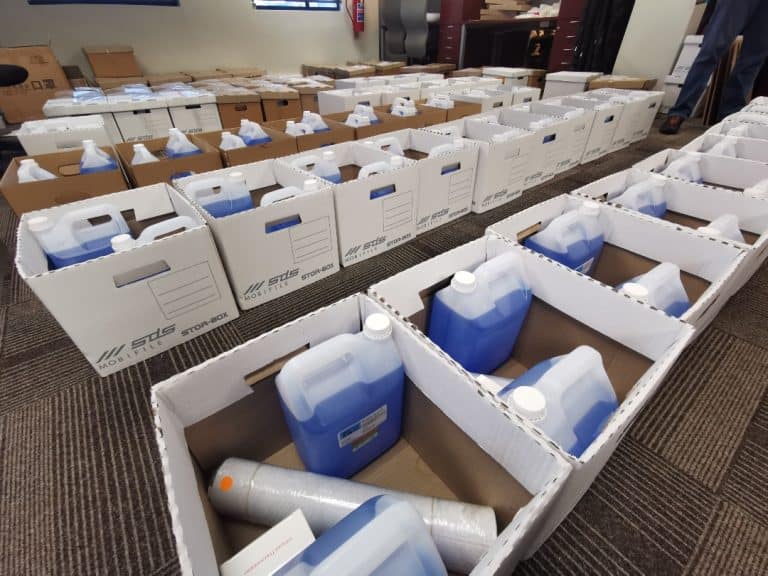COVID-19 impact: Distress levels are high and rising
While some people do have enough food and other supplies to live comfortably during the lockdown, many others are in a much different position.
Dr Johan Böning of Solidarity Helping Hand says 782 needy families were provided with food and hand sanitisers from 4 to 10 April, and 74 institutions were assisted. “The need remains enormous. In Welkom, in only one street there are 46 families in need of emergency food parcels. We have also been notified of a great need in for example East Lynne and Jan Niemand Park in Pretoria.” Böning also thanked the farmers and the public for their support thus far.
Vulnerable elderly people in particular, but also many families and individuals, are struggling to keep their heads above water in this time when they cannot work. This situation is awaiting many people, and the economic impact is going to hit communities hard in the coming months.
“People do not have money to plan for long periods, and at this stage they are living from hand to mouth. Even in the second week of the lockdown we were approached by people for assistance, something we expected to happen only at a later stage,” says Hennie Bekker, AfriForum’s District Coordinator for the Lowveld.
According to Bekker, people are turning to desperate practices simply to get food. “We have seen people catching and selling fish to earn some money. They have now been forbidden to do this, leaving them in an extremely difficult position as far as essential items are concerned. In such situations, we have joined hands with organisations such as Solidarity Helping Hand, Saai and others to coordinate the distribution of food and other necessities to avoid a situation where some places are getting too much and others too little. Every day, more role-players are offering to make a contribution.”
It is important to strengthen the functioning networks of existing organisations that relieve poverty and, for example, may supply food. This is why AfriForum and Saai are launching a distribution network to assist needy persons. It is, however, important not to redesign the wheel but instead to strengthen existing, well-established networks such as that of Solidarity Helping Hand and help them to increase logistical and transportation capacity at ground level.
Bekker says price increases are another factor. “Sometimes increases are subtle, but people are compelled to buy goods at much higher prices. They also now have to buy goods that they normally would not buy, such as hand sanitiser and masks, at inflated prices and in larger quantities. This, of course, leaves them with less disposable income.”
He says homes for the aged now are a challenge. “For example, homes for the aged in White River and Bethal have a shortage of masks and hand sanitisers. Owing to the present uncertainty, people are reluctant to make donations to homes for the aged, and the logistics of delivering donations is another huge challenge to ordinary people in these times.”
AfriForum has branches and neighbourhood watches in many towns and cities across the country and is already assisting people with the distribution of face masks, hand sanitisers and even food.
“Helping Hand’s structures already are well-established, and the fact that we are joining hands with AfriForum and Saai ensures that three strong organisations are standing together to create hope within these structures. In these tough times, Helping Hand’s Joseph Silos are a lifebuoy for numerous needy people. More than 70 Joseph Silos have been established countrywide. The amount received so far within the Joseph Silo project has almost reached R2 million, and Helping Hand has been able to provide food to hundreds of families and institutions such as homes for the aged and children’s homes over the past two weeks,” says René Roux, Deputy CEO of Communication at Solidarity Helping Hand.
You can help to strengthen our hands by making a donation at https://bit.ly/TakFnds or donating food to Solidarity Helping Hand.











